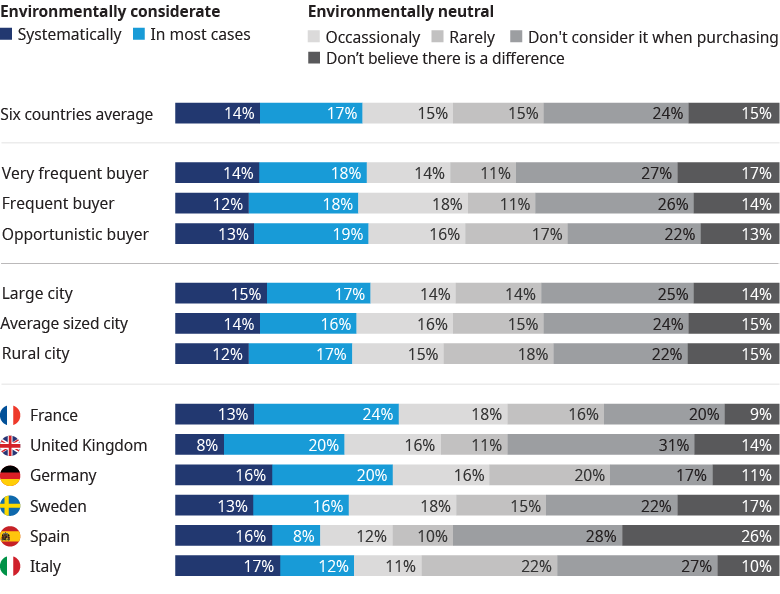The growing diversity of e-commerce models offers opportunity and choice. But it also makes it increasingly complex for consumers to understand the environmental impact of their online purchases.
In a recent survey by Oliver Wyman, nearly a third of e-shoppers across six European countries said that they do consider the environmental impact of their purchases – either systematically or in most cases. This level of engagement holds true pretty much across the board: whether buyers are opportunistic or frequent, or live in a city or a rural area. Out of the six countries, shoppers from France and Germany are the most likely to be focused on environmental impacts.
Online shoppers’ level of environmental awareness does seem to have increased in recent years; for example, French e-shoppers considering the environment in their purchasing decisions rose from 30% in Oliver Wyman’s 2019 survey to 37% in the 2022 survey.
Being aware of the environmental consequences of online shopping appears to have increased customers’ willingness to act. A majority of e-shoppers (87%) said that they would be interested in adopting habits to reduce their environmental impact. Changes that customers said they would be willing to make include grouping orders, favoring local shipment, shopping at environmentally friendly merchants/websites, and walking to a pickup point. But the need for speed still prevails – only a minority (13%) would accept delayed delivery if it could reduce delivery emissions.

This information is based on an independent study led by Oliver Wyman and commissioned by Amazon. See the full report here.